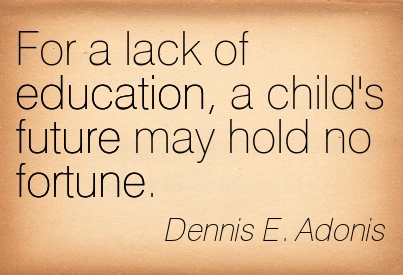All human societies, previous and present, have had a vested curiosity in training; and some wits have claimed that educating (at its finest an educational activity) is the second oldest profession. And interestingly, there now’s barely extra interest in Dewey on the a part of philosophers of training within the UK than there was in earlier years, and there’s growing interest by philosophers from the Continent (see, for instance, Biesta and Burbules 2003).
Philosophers of education extra pushed by a prescriptive or analytical impulse can and do share lots of the identical social and political commitments as critically oriented philosophers of schooling; and a few of them may see their work as ultimately serving lots of the identical targets of criticizing hegemonic ideologies and selling human emancipation.
First, these very broad orientations are in lots of respects easier to generalize inside the discipline than would be any specific set of disciplinary criteria; many alternative sorts of philosophy of training can manifest these sorts of inclinations.
Nonetheless, some works on this genre are among the many classics of instructional thought”—a more felicitous label than philosophy of schooling”; instances in point would be the essays, pamphlets and letters of Thomas Arnold (headmaster of Rugby school), John Wesley (the founding father of Methodism), J.H. (Cardinal) Newman, T.H. Huxley, and the writings on progressive education by A.S. Neill (of Summerhill college).
This tension is perhaps felt most acutely by up to date publish-trendy philosophers of training, but it can be seen in much of the work of neo-Marxists, important theorists, feminists, and Foucauldians as properly: the way to argue for and promote an emancipatory strategy to education that doesn’t itself fall into the habits of exclusionary language, authoritative (if not authoritarian) postures, and universalizing generalizations which are excoriated when detected in the work of others.
